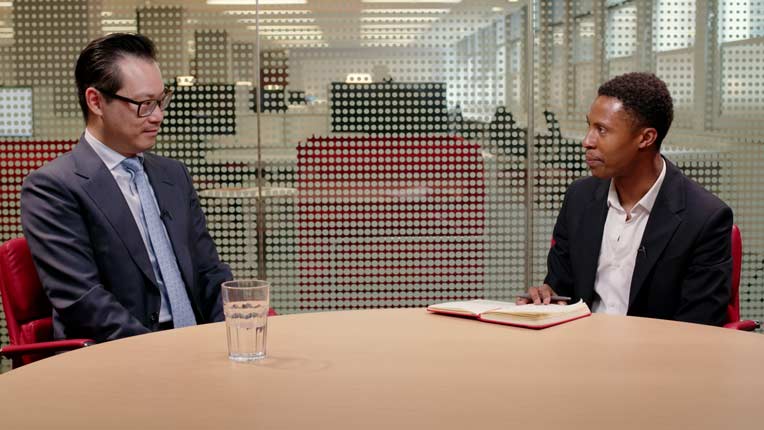Last month's case study addressed planning for retirement following a divorce. This month, an independent financial adviser takes a look at the case of a young professional who is struggling with a hefty mortgage and finds the prospect of planning financially for the future rather daunting. To submit your own question or scenario for consideration as next month's case study, please e-mail editorial@hemscott.co.uk.
Case Study
"I am approaching my 30s, have zero savings but also zero debt, with the
exception of the small matter of an interest-only £180,000 mortgage
(c.80% LTV) fixed at an unhappily-high interest rate for another 18
months with a 3% early-repayment penalty. My monthly mortgage payments
swallow half my net salary and leave me with just enough--after
essential outgoings--to enjoy the occasional meal out and budget
holiday. I don’t plan on getting married and so a wedding is not
something I need to save for. However, my partner and I would like to
move into a house together in the next year or so, though he won’t be
able to contribute much by way of household income until his studies are
complete in two years’ time. Add to this the ongoing fear that economic
instability could see either me out of a job or my partner unable to get
one on completion of his studies. I feel that I should be doing some
financial planning to ensure that I am in a position to embark on some
life changes such as moving home and eventually starting a family but,
despite being frugal, I struggle to save much more than £100 per
month--£100 that I have no idea what to do with other than stick it in
my savings account. There seems little point in joining my company
pension scheme, as company contributions have been suspended due to the
economic climate. Could you please suggest some steps I could take to
improve my financial security?"
Independent Response
Alexandre Riley, Director, Medical
& General Independent Financial Advisers
"With the stated priority being one of "financial security" and the description of current financial spending as "frugal," I would gather that overall sentiment is one of caution and aversion to risk.
"Fortunately, there is no expensive credit card debt to repay but with no savings and an interest only mortgage balance in excess of five times salary there is an obvious strain on income. With a static mortgage balance, how will the debt eventually be repaid and how will the monthly payments be maintained if income were to cease?
"These are common concerns however there are positive factors to be taken into consideration:
1. The ability to save £100 per month, and possibly more, if a full analysis of income and expenditure is undertaken.
2. In 18 months the fixed mortgage rate will end and with interest rates expected to remain low for the foreseeable future a lower cost mortgage product could become available, or a reversion to a lower standard mortgage rate depending on the lender and terms.
 3. Living with a partner should cut costs, however small, and therefore
free up income. However, with a partner currently studying, the
availability of mortgage finance more difficult to obtain, together with
the high costs of moving to be considered, it may be prudent to wait
before moving to a new home.
3. Living with a partner should cut costs, however small, and therefore
free up income. However, with a partner currently studying, the
availability of mortgage finance more difficult to obtain, together with
the high costs of moving to be considered, it may be prudent to wait
before moving to a new home.
4. Once the partner's study concludes, household income is likely to increase significantly facilitating financial planning opportunities.
"Therefore a certain amount of patience and commitment to saving are prerequisites for a successful outcome. We would suggest considering one of or a combination of the following:
1. Having access to an ‘emergency’ cash account is essential before embarking on substantial investment and pension commitments. A cash balance would provide a cushion in the event of redundancy and it would allow mortgage payments to be maintained. Saving a minimum of three months net salary is generally recommended and a monthly direct debit to a tax-free cash Individual Savings Account (ISA) could be the ideal vehicle to save into.
2. Consider insurance such as Accident, Sickness & Unemployment cover to protect the mortgage payments if security is valued now. This should be within the stated budget and it may offer peace of mind until your partner begins employment and finances become clearer.
3. Convert a small proportion of the mortgage to repayment or contribute to a Stocks & Shares ISA to repay the mortgage if the investment risk is acceptable. However, to repay a £180,000 mortgage the estimated ISA cost could be upwards of £250 per month over 25 years at a 7% return. This may be unachievable until your partner is working.
4. Be patient. Recognising the issues is one part of the problem solved and committing to a financial plan is a long term exercise. Start now with what you can and review the circumstances periodically."
Disclaimer: All views expressed in this article are those of the financial adviser and not necessarily those of Morningstar, Inc. Morningstar is not responsible for the financial adviser's comments nor will it be liable in any way for any advice or information provided by the financial adviser.
























